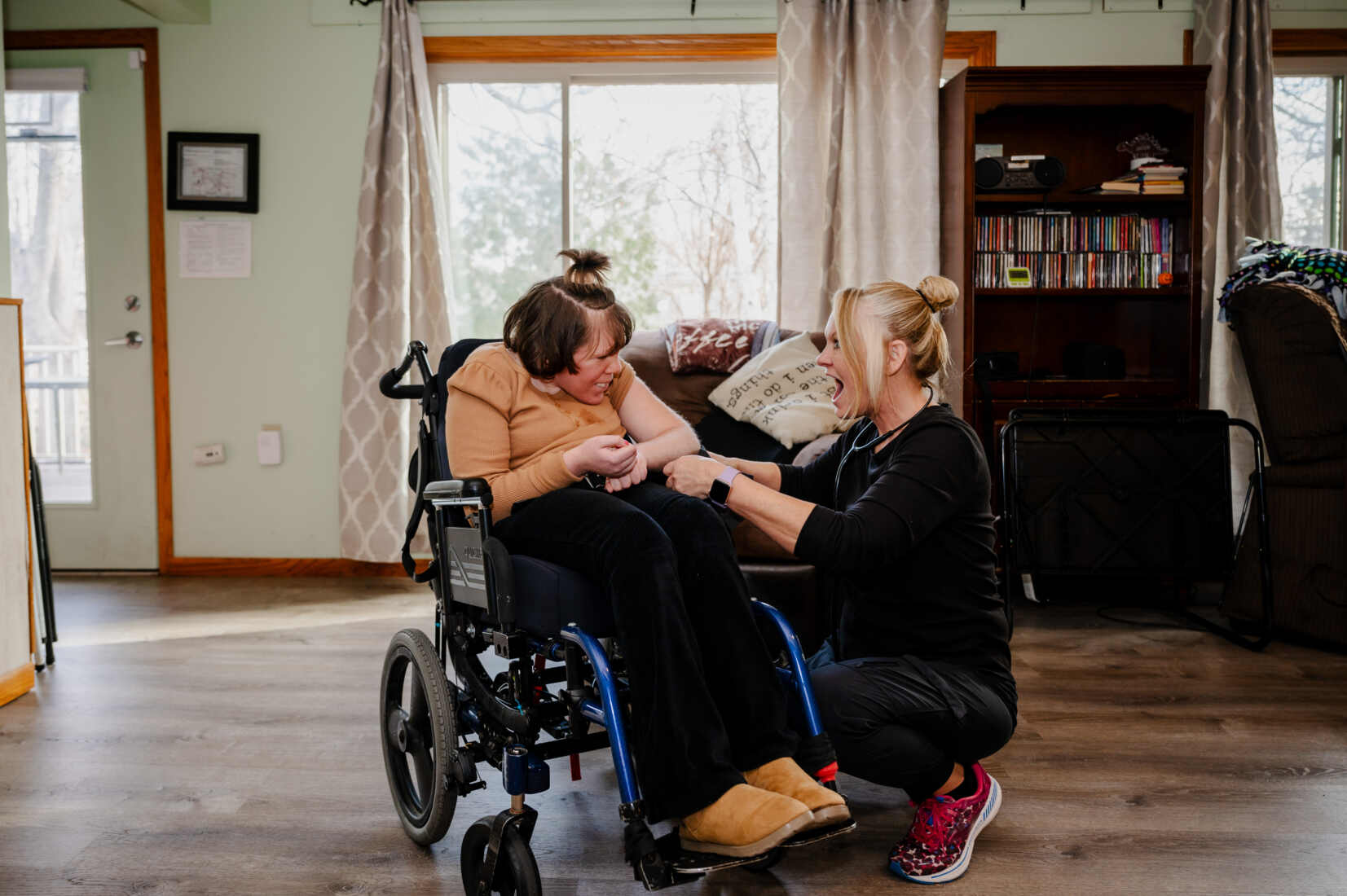The Importance Of Compassion in Long-Term Healthcare

Written by: Jillian Arkoff, Direct Care Professional at ACR Homes
Within the walls of long-term healthcare facilities like ACR Homes, a simple but important effort shapes the lives of residents: compassion. It extends beyond mere medical treatment, becoming the cornerstone of a resident's quality of life. Residents often face a multitude of challenges – the loss of independence, the potential of loneliness, and chronic health conditions. Here, the compassionate actions of staff foster a sense of belonging and purpose that enhances a resident’s life by providing quality care.
Residents that enter long-term care may miss their previous living situation and family that are far away. Compassionate staff members bridge this gap by creating a welcoming environment that fosters a sense of belonging. This isn't simply about polite greetings, but about actively listening to residents' stories, building genuine rapport, and even organizing outings and activities that create new, shared experiences. These acts of compassion not only combat loneliness but also cultivate a vibrant sense of community within the facility. Residents connect over shared stories, laughter during outings, and the comfort of knowing they're surrounded by people who care. This sense of belonging isn't just emotionally uplifting; it's a crucial element of quality care, as social interaction has been shown to improve cognitive function and overall well-being. This ultimately improves quality of life for residents and fosters a sense of community.
As residents age, their physical and cognitive abilities may decline resulting in a loss of independence. Daily tasks that were once routine can become challenges. This can be a source of frustration and helplessness for residents. A compassionate approach to care acknowledges these struggles while preserving residents' dignity and self-respect. Staff members who prioritize compassion can achieve this delicate balance by offering assistance in a sensitive and supportive manner, while still encouraging residents to maintain their independence as much as possible. This might involve providing practical support with tasks like bathing or dressing, while simultaneously acknowledging the resident's preferences and offering choices whenever feasible. For example, a compassionate staff might offer a resident the option of choosing their outfit instead of simply dressing them. This seemingly small act shows respect for the resident's autonomy and individuality, ultimately contributing to a higher quality of life.Prioritizing compassion in long-term care creates an environment where otherwise vulnerable people are able to have a high quality of life. This investment into compassionate, quality care results in physical and mental well-being for residents.
Compassion in long-term care isn't confined to emotional support. It is intricately intertwined with the quality of medical care residents receive. Studies have shown that compassionate care can lead to improved treatment outcomes. When residents feel cared for and understood, they are more likely to adhere to treatment plans, participate actively in their healthcare decisions, and openly communicate their concerns. This fosters a collaborative approach to healthcare, leading to better overall management of chronic conditions. Furthermore, compassionate interactions can create a sense of security and trust, alleviating the stress and anxiety that can accompany chronic illness and long-term care. This reduction in stress can positively impact physical health, creating a positive feedback loop where improved emotional well-being leads to a stronger body and mind.
Compassion also fosters a more positive and supportive work environment for staff. When staff members feel valued and empowered to provide compassionate care, they experience a greater sense of purpose and fulfillment in their roles. This, in turn, reduces burnout and invites a more positive and cohesive team dynamic. Ultimately, investing in compassionate, quality care creates a win-win situation for everyone involved. Residents experience a higher quality of life, staff members feel valued and engaged, and the facility as a whole fosters a culture of well-being that benefits everyone.
In conclusion, compassion is not a luxury in long-term care; it is the essential standard that ensures quality care. By recognizing the emotional, social, and physical needs of residents, staff members in facilities like ACR Homes can create a truly enriching and supportive environment. This commitment to compassionate care ensures that residents can live their lives to the fullest, with dignity, purpose, and a sense of belonging, regardless of challenging circumstances.
